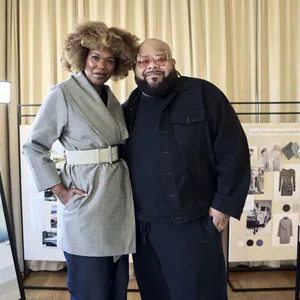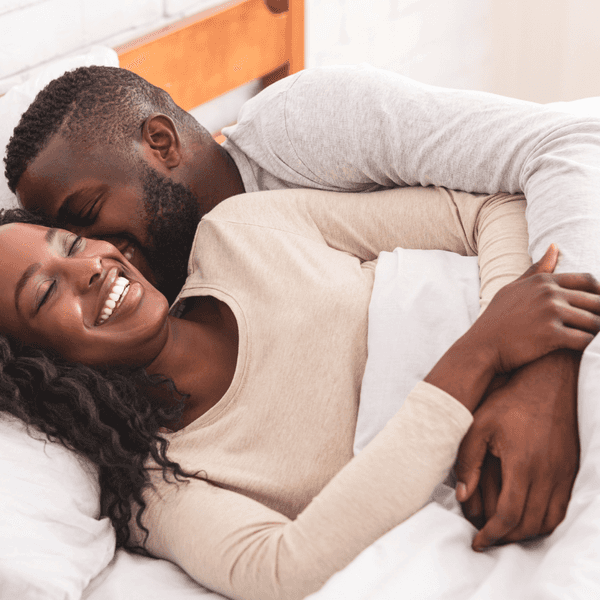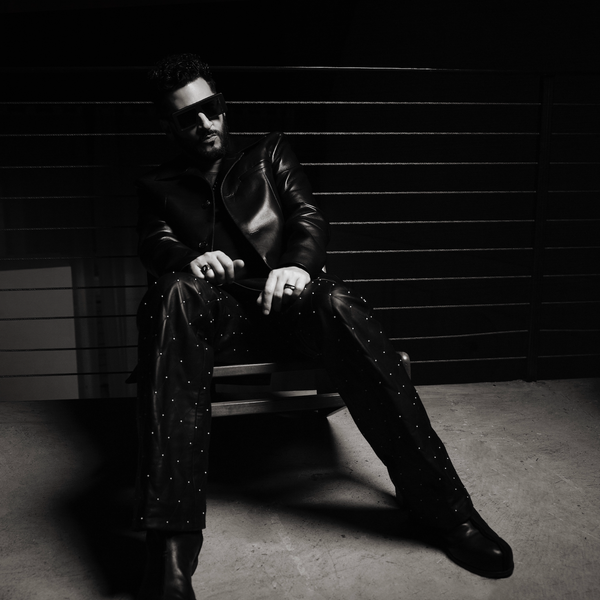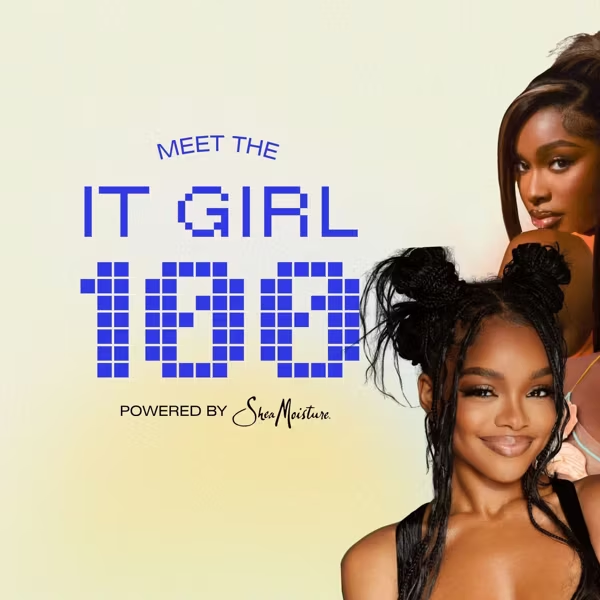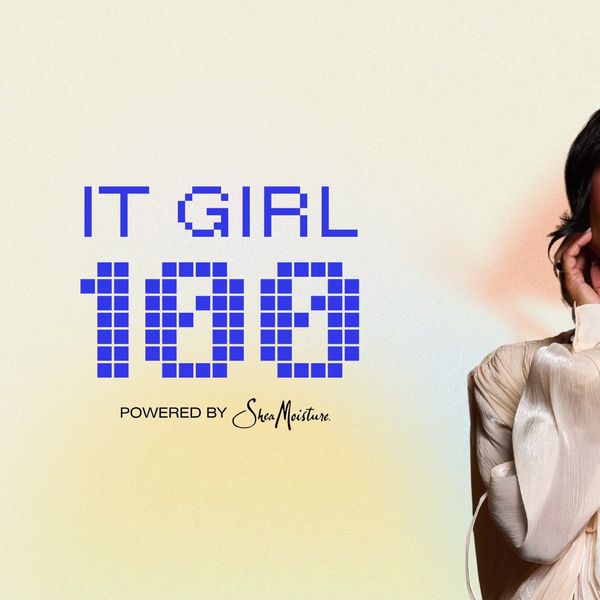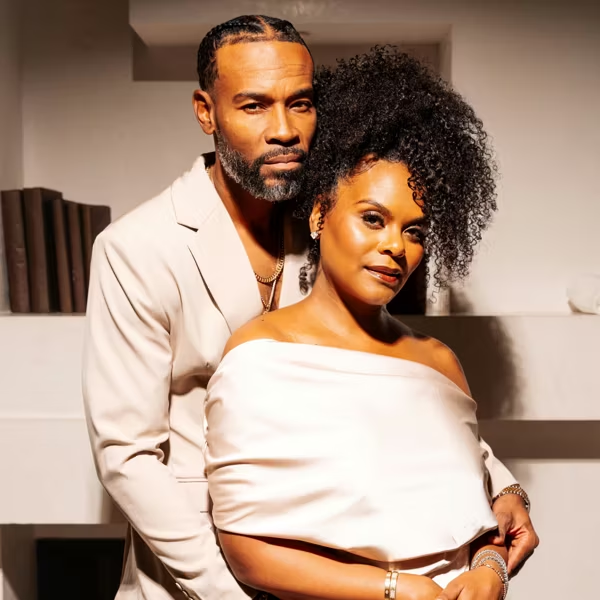You gotta love Black love, especially when it's shown in its full, hot, sticky, magical lusciousness on the big screen through Black sex scenes. When we see ourselves loving on one another in ways that are passionate and real, we get the feels, not just because it's great to fantasize about replicating in real life---but because it humanizes our experiences and showcases a side of us that's not always fighting, suffering, or traumatized.
The memories of classic Black sex scenes on film and TV live forever. Here are 15 Black sex scenes to take you back and reignite the love and passion in your life:
'Moonlight'
When Kevin and Chiron shared their first kiss, validating feelings they'd had for each other and taking unspoken bonds to the next level, it was passionate and endearing. Kevin then pleasured Chiron via a hand job, which is another act of endearment that further solidified a gift of freedom in sexual identity that they could not fully reveal in their everyday lives. That scene from the 2016 Academy Award-winning film reminded us all of our own first time with a deep crush or connection from our teen years.
'The Photograph'
You gotta love a story of instant attraction between two creatives, and Micheal and Mae don't disappoint in this film. The journalist and art curator (respectively) enjoy a steamy romp during a New York City rainstorm, reminding us all how deliciously fun having a storm bae can be. And the fact that their love has a backdrop of Mae's mother's affair with the father she never knew adds that much more allure. (A close second in the favorite love scene category for this film is the one with her mother and father in 1980s New Orleans enjoying their first time to Luther Vandross and Cheryl Lynn's "If This World Were Mine.")
'Belly'
You've got thug-loving at its finest in this scene, and DMX showed us that doggy style means more than just barking in a rap song. Though his character in the film, Tommy Buns, had a very toxic relationship with his live-in bae Kiesha, played by the beautiful Taral Hicks, this scene made us all---OK maybe just me---think back on that one street dude you had to let go but who could have you climbing the walls and answering his calls a little longer than you should have.
'School Daze'
Tisha Campbell played Jane Toussaint, an HBCU student, and leader of the Gamma Rays, a social group that supported the fictional fraternity in the film, Gamma Phi Gamma. The frat's leader, Julian, was her bae (played by Giancarlo Esposito). There's a spicy scene in the film where the two take a break from stepping, party-planning, and being messy to get their freak on. Speaking of freaky, Jane goes as far as licking Julian's parted haircut, giving a whole new meaning to fetishes among undergrads. (When my girls and I saw this film for the first time as college freshmen, some were totally grossed out, others argued the feminist implications of a young woman doing such a thing, and the rest---including me---wondered whether there was indeed a fruit-flavored hair oil on the market for ... nevermind.
'Sylvie's Love'
This film, set in the 1960s, gives Carmen Jones vibes with a bit of edge. When Sylvie meets saxophonist Robert, it's love at first sight on a Harlem street, and things get much more sensual and romantic. Their first time making love is on a rooftop, and then they meet up again, years later, at New York's iconic Plaza Hotel. What adds to the appeal of the sex scenes between the two is the legendary jazz and R&B soundtrack and the nostalgic style of lingerie Sylvie wears, providing inspo for all of us to role play and get into a few 60s-inspired pieces ourselves.
'She's Gotta Have It'
We are so here for artist Nola, who identifies as a polyamorous bisexual, and her relationships with men and women that include wonderfully entertaining escapades in her "loving bed." One major relationship was the one she had with Opal, a single mother and a horticulturalist. The two explore not only physical awareness and intimacy but a deep personal connection, leading Nola to rethink her life and consider settling down. Good sex will do that to ya!
'Jason's Lyric'
When blue-collar Jason (played by Allen Payne) wanted to take Lyric (played by Jada Pinkett-Smith) out of the Houston hood and into a new life of love and infinite possibilities, we'd already fallen for him. When he commandeered a whole city bus to take her on a date, we swooned. But when we saw his chiseled back and hairy man-parts putting in work with Lyric in a field of lilac flowers, we all wet our panties and reconsidered giving that hard-working brotha at the Radio Shack a chance. (Go ahead, sis. Don't be ashamed. You know you did.)
'The Skinny'
This indie film is about a group of friends from Brown University who travel together for a weekend filled with drama, sex, and revelations. Especially sexy and sultry are the exchanges between Magnus and his boyfriend Ryan, including long, deep kissing sessions and lots of deep stroking.
'Love Jones'
This is, without a doubt, a classic favorite, and Darius Lovehall (played by the never-aging-a-day-in-his-life Larenz Tate) awakened the sapiosexual in all of us with his sensual wordplay and intellectual prowess during house-party debates. But when he and Nina Mosley (played by another actress who proves that Black indeed doesn't crack, Nia Long) finally hit the sheets, it was more than a sight for sore eyes. Add Maxwell's "Somethin' Somethin'" remix laying the vibes for lovemaking and you've got the peak to a love story that just made us all wish we had a writer boyfriend to be the "blues" in our "left thigh trying to become the funk" in our "right." Yas! That's all right!
'Power'
Flexing muscles just always does something to me, and Ghost (played by Omari Hardwick) knew just how to do that while stroking the living daylights out of Tasha (Naturi Naughton). Half the time I didn't care that it was often angry make-up sex between the hubby-and-wife crime duo because, TBH, seeing a strong Black man with a coin---and clearly great gym form---getting it on was always fine by me. The determination on his face, the multiple positions, and the look of bliss at the end of almost every scene...whew chile! Just go ahead and rewind again. We won't be mad.
'Insecure'
Issa Rae reminds us all that everyday women---even us awkward girls---can get our rocks off on the regular, and enjoy sex with some fine men to boot. From your usual comfy-couple sex on the couch with Lawrence (Jay Ellis), her soon-to-be ex, to crazy studio rendezvous with her rebound guy Daniel (Y'lan Noel), it's all about normalizing the dynamics of sex beyond love-story fairy tales and into the realm of IRL ish.
'Do the Right Thing'
Spike Lee sheds light on baby mama drama---and the love in between---as Mookie, who absolutely frustrates his boo Tina (Rosie Perez) throughout the whole film. Despite the arguments, the two end up having a playful sensual escapade. Mookie pulled out the ice trays---and got the side-eye from their son's caretaker, Tina's own mom---to give the both of them much-needed relief from the NYC heat. The dripping cubes-on-nipples action was something I probably shouldn't have been watching at the young age I was when I saw this movie for the first time, but as a grown woman, I can appreciate the combo of frozen treats and laughter to make relationship frustrations disappear.
'Baby Boy'
Now, some of you might fight me on this one, but who didn't didn't want to "make the tacos" for somebody after watching that scene? (And this movie has another hot love scene contender in Ving Rhames (who played Melvin) when he blessed Jody's mom, Juanita (A.J. Johnson), with a little standing froggy-style action.) I know, I know: Baby daddy-baby mama drama at its finest. You can't deny, though, that this scene was one to re-watch and that it was refreshing to see a young couple work through their issues to find common ground and holy matrimony in the end.
'Bessie'
Queen Latifah shines as one of the foremothers of blues, Bessie Smith, and in the film, she shares beautiful moments with her friend and lover, Lucille. The vulnerability and flirtatious exchanges between the two add an extra enchantment to watching this major part of the singer's life unfold through film.
'Creed'
Michael B. Jordan. Need I say more? OK, I'll go on. His character in the film, Adonis, falls in love with Bianca, a hearing-impaired singer-songwriter played by Tessa Thompson. In one scene, the two gain an understanding and connection via music and have a meeting of minds in how they'll both overcome inner demons to reach their life and career goals. Who doesn't love a man who can accept and love all of you? And again, Michael B. Jordan. 'Nuff said.
Featured Image Gif via Buzzfeed
Originally published on March 5, 2020


